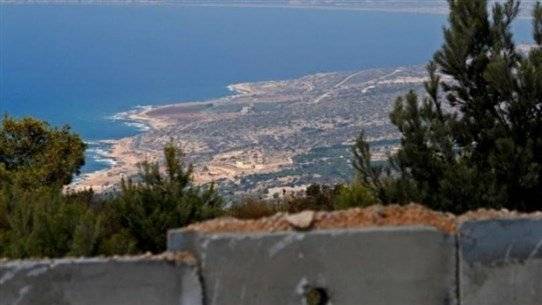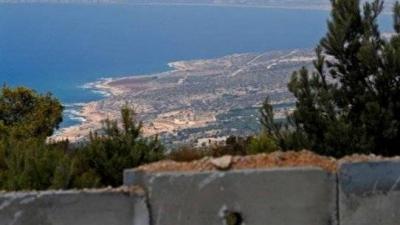If the data and news released by global news agencies and websites are correct, the adoption by the U.S. Department of Defense of the content of the State Department's statement regarding the maritime demarcation process between Lebanon and Israel represents an unprecedented step since the resumption of indirect negotiations between them, and at least since the announcement of the "framework agreement" on October 1, 2021. Until recently, the U.S. Department of Defense has not engaged in any approach regarding the mission of any U.S. envoy to these negotiations since they began in Naqoura, two weeks after that agreement, and have included five sessions until May 5 of last year. This period separated the end of former President Donald Trump's term and current President Joe Biden's term when Amos Hochstein took over the task from his predecessor John Doroshieh, who has since become the U.S. ambassador to Qatar at the beginning of the new American administration.
In light of this surprising development, political, technical, and diplomatic references have paused to observe the content of the statement issued by the Department of Defense late on Friday night - Saturday morning Beirut time. This statement verbatim supports the content of the State Department's statement released just hours before, confirming the United States' commitment to "facilitating negotiations between Lebanon and Israel to reach a decision on the maritime boundary demarcation, and that progress towards a solution can only be achieved through negotiations between the parties." Similar to the State Department, the Department of Defense replicated the statement, praising the "consultative and candid spirit of the parties to reach a final decision, which would lead to more stability, security, and prosperity for both Lebanon and Israel, as well as for the region, indicating that a solution is possible."
After verifying the authenticity of both statements, diplomatic references accompanying the negotiations noted that this step cannot be separated in form and content from the preliminary results established during President Biden's first visit to Israel, which allowed for an extended meeting between Israeli Energy Minister Karine Elharrar and Mr. Hochstein, a member of Biden's accompanying delegation. He initiated the series of American positions regarding the demarcation, which accompanied Biden's transition from Israel and Bethlehem to the Kingdom of Saudi Arabia, confirming that "some gaps have been narrowed, and we had good discussions."
After highlighting this progress, Hochstein indicated that he would continue discussions after Biden's Middle East visit, according to Israeli media, which stated that "there must be mutual agreement between Israel and Lebanon, and the role of the United States is to help reach an agreement that serves the interests of both countries," concluding, "We have made good progress in both Lebanon and Israel." However, Hochstein, while reiterating what could imply positivity in his mission, pointed out at the end of his remarks concerning "# the recent positions and threats of Hezbollah Secretary-General Hassan Nasrallah," who delivered a series of messages containing threats against Israel, stating that if the choice were between imposing a blockade and hunger on the Lebanese or waging war to end this situation, based on the premise that "no extraction of Israeli oil and gas will occur before guaranteeing Lebanon's rights to its wealth, not just from Karish, but 'beyond Karish,'" referring to the remaining Israeli basins in the region.
In facing these new, conflicting indicators, diplomatic references considered that the perspective on Hochstein's mission should change from today; the aftermath of Biden's visit is different from its preceding context. Hochstein's talk about returning to Lebanon and the region after the "Jeddah Summit" and Biden's meetings with Saudi leadership will be of great interest, if not surprising. Before all these milestones brought by the historic American visit, it was stated that Hochstein would return to Beirut before the end of July and would have the final Israeli response to Lebanon's last offer regarding the correction of "the winding Hochstein line" and the development of the gap concerning the southern part of the Qana field, as well as the correction of the line to be direct to recover what the American mediator omitted from the southern parts of blocks 9 and 8.
If these circulating scenarios in Beirut regarding positive backgrounds are accurate, the diplomatic references stress the need to develop the Lebanese position toward defining the final stance regarding the Israeli response. If it is positive, everyone will face a new test, particularly the unified Lebanese stance. This would be the first of its kind since Lebanon expressed it during Hochstein's last visit to Beirut in early June. If this position remains unified, the process will advance as outlined by Hochstein, and we will witness a comprehensive agreement on the new line before the end of September, enabling oil extraction from Karish without any security or military issues, and Lebanon will embark on its quest for wealth to substantiate it in the Karish field and other locations, provided international companies respond positively to Lebanon's extension of the exploration bids deadline to December 15.
Finally, based on the preceding, the concerned references conclude by stating that it is essential to examine the content of the U.S. Department of Defense's statement regarding the demarcation process and interpret it based on what it represents as military support for the diplomatic mission led by Hochstein. This lays the groundwork for a new scenario to watch for in terms of its form, content, and milestones in the near future.




